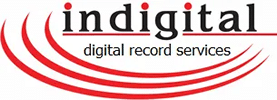There are many advantages for a business to work toward a paperless office. But this relatively new technology also causes a lot of concern and confusion among those who would have to work within the system.
Does your office currently struggle with the idea of adopting a paperless strategy? If so, here are four of the most common worries you’ll face and how to address each of them.
Not Everyone Is Savvy
Paperless systems do require instructions and operations that paper files simply don’t have. And there will be those who opt to continue to do certain tasks on paper.
But more and more workers and customers are adapting to the world of digital records despite challenges. You’re likely to find that most customers and employees are more than able to at least tip-toe into the digital world with sufficient support and patience.
Keep in mind that transitioning to digital record keeping doesn’t mean your entire operation must throw out all pieces of paper or hard files. You can pick and choose the easiest or most logical places to start — such as archiving old files, introducing fillable forms, or creating a customer portal. Other tasks can still be done in traditional ways until their day comes.
The Transition Is Complicated
This concern may come from employees or others who were involved in early attempts to convert to digital office systems. Young technology, unwieldy scanners and storage systems, or user-unfriendly operations turned many offices away from adopting this technology in older days.
But today’s digital filing systems often require nothing more than software for the computers or a portal and a desk-top scanner. The technology in scanner systems today mean much more flexibility about what and how to scan, filing systems allow easier access to archives, and integration means you can gather much more information from one desk than ever before.
Our System Works Fine
Why fix what isn’t broken? It’s not an illogical argument, but it’s also not one that looks to the future of your business. The technology has come down in price during recent years while ease and convenience has gone up. At some point, digital archiving may be nearly as inexpensive as paper — but with added perks that paper can’t offer.
What kinds of benefits do digital records offer? Easy access to correct information by employees throughout your company. Less data entry error and redundancy for customers. Less storage space and cost for essential record keeping. Less risk for the company in the event of a natural disaster. More mobility for everyone.
No One Has the Time
Adoption of any new system will require some investment of time and money. But, like any investment, this is a way of planning for a better future.
If your problem is limited time to devote to this project, get some help for those involved. You may want to hire a temporary worker or two who can scan and archive older files or assist the person in charge of archiving the new digital records. Can you reassign some work or move projects back so that employees have time to devote to learning a new system?
Focus on the benefits that this change will bring in the near future. How much time, for example, will the accounting department save on researching transactions? How can customer-facing employees benefit from not having to re-enter information? Will a good customer portal cut down on phone calls or after-hours inquiries? This is a long-term project, so don’t let short-term challenges stop you.
Change can be difficult, and it’s normal to have obstacles to move past. But with the right attitude and a clear goal, your company can meet these challenges. At Indigital, Inc, we can help. Call today to learn how our digital records systems will help you become more efficient and more profitable.

